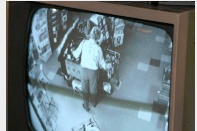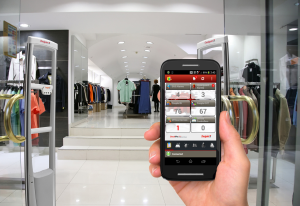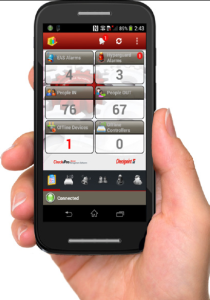Video surveillance has been considered for many stores a way to stay abreast criminal acts against their businesses. Shoplifting is crime that is constantly jeopardizing profits for many stores across the world, video cameras and other means to prevent shoplifting have helped stores fight this crime, but is always a battle that is changing with new technology coming into play. Posting and knowing the policies and procedures that govern your retail stores concerning shoplifting, can help keep your employees safe and your store from becoming a hang out place for shoplifters.
Read more about this and other topics by following the links below.
Macy’s employee stabbed trying to stop shoplifting at D.C. store, police say
A Macy’s employee was stabbed in the shoulder Tuesday afternoon as he tried to prevent a suspected shoplifter from leaving the store’s downtown location near Metro Center, according to D.C. police.
The worker was not seriously injured and the suspected stabber was arrested, police said. The incident occurred about 3:30 p.m. near the store’s entrance in the 1200 block of G Street NW, along a street lined with stores four blocks from the White House.
Lt. Sean Conboy said police could not immediately provide any information about the person who was arrested.
Taking steps to prevent shoplifting
In early July, $3,000 in designer dresses, slacks and jackets were stolen from ADORE Designer Retail Boutique in Cary, one of Nancy Alinovi’s two consignment shops in the Triangle. She still feels sick about it.
“It’s just this feeling in your chest,” she said. “It’s not a victimless crime.”
Alinovi said it will be two months before everything returns to normal at the family-owned boutiques, which cut prices in order to stay afloat after the theft. Her experience shows the toll shoplifting takes on small businesses, where margins are small and business is personal.
There were 582 calls to the Raleigh Police Department regarding shoplifting in the past year, said Jim Sughrue, department spokesman. They run the gamut from family-run gas stations to department stores, he said.
According to a National Retail Federation’s security survey, shoplifting accounted for 38 percent of the $44 billion in retail inventory loss due to crime in 2014.
Police nab thief with aid of video
Video surveillance was a key factor in the arrest of a Grand Falls-Windsor man Aug. 9 after he was caught on film on three separate occasions stealing from local businesses.
Grand Falls–Windsor RCMP arrested and charged the 27-year-old with theft under $5000. He was released from custody, placed on conditions and scheduled to appear in court at a later date.
Grand Falls-RCMP also dealt with a number of assault and disturbance cases among the 68 calls for service fielded at the detachment between Aug. 3 and Aug. 9.
On Aug. 4, the Grand Falls–Windsor RCMP arrested and charged a 30-year-old Grand Falls–Windsor resident for uttering threats. The male had written a letter threatening to kill a local female. The male is scheduled to appear in court at a later date.






